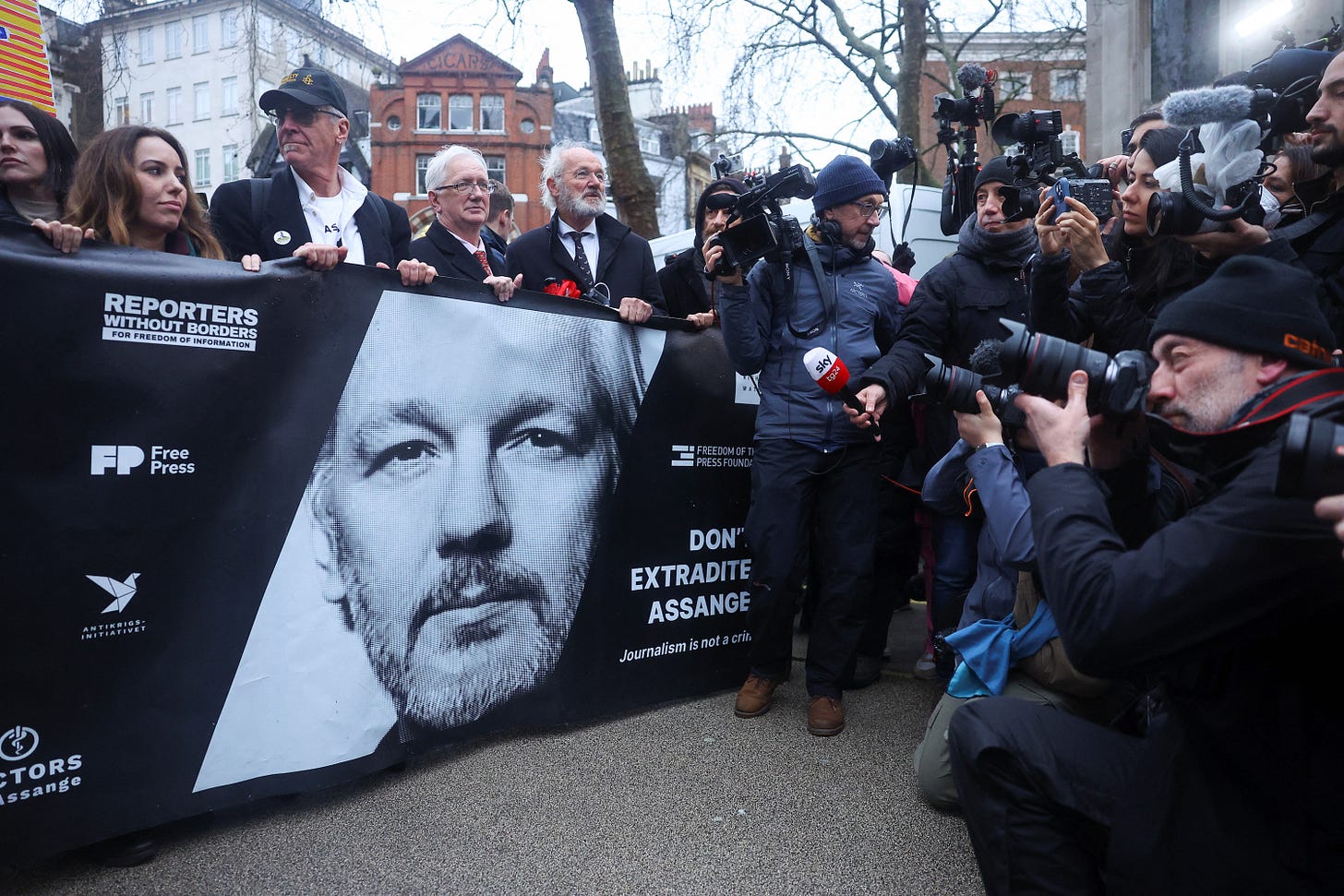Julian Assange Wins a Small Victory in British High Court, but the Fight Isn’t Over
Wikileaks Founder is locked in a grim legal battle, contesting his extradition from the UK to USA.
A Rare Legal Victory
Last week, the British High Court granted Julian Assange a significant legal win, allowing him to appeal against the order of his extradition to the United States. The court prima facie recognised that Assange, a citizen of Australia, might face denial of free expression rights and discrimination if tried in the US. Despite this, the battle for Assange’s freedom—and the broader implications for global press freedom—continues.
Background of the Case
Julian Assange, the founder of WikiLeaks, has been embroiled in legal battles since his arrest by British police on April 11, 2019. The US unsealed indictments against him, leading to charges under the Espionage Act and the Computer Fraud and Abuse Act, stemming from WikiLeaks’ publication of classified documents from whistleblower Chelsea Manning. Assange’s defence argued that his extradition was sought for political reasons, which is barred under British law. Initially, a British judge blocked his extradition due to concerns over prison conditions, but this decision was overturned on appeal.
Grounds for Appeal
Assange’s legal team presented nine grounds for appeal, primarily focusing on his role as a journalist exposing state criminality. They argued that prosecuting him for publishing information of public interest violated his right to free expression. However, the High Court dismissed most of these arguments, asserting that the charges related to ordinary crimes rather than issues of free expression. The court did allow appeal on two critical points: the risk of the death penalty and potential discrimination based on nationality, particularly concerning First Amendment rights.
UK High Court’s Decision
The High Court’s decision was mixed. It rejected Assange’s majority arguments but acknowledged that the US assurances regarding his treatment were inadequate. Particularly, the US did not unequivocally promise not to seek the death penalty or refrain from arguing that Assange, as a foreign national, lacks First Amendment protections. The court’s acceptance of these assurances was conditional, allowing Assange to challenge them.
A Decade-Long Legal Battle
Julian Assange has faced a protracted legal battle, spanning over a decade. Indicted on 17 espionage charges and one charge of computer misuse in the United States for publishing classified documents in 2010, Assange's situation has drawn significant international attention. His supporters argue that the prosecution is politically motivated and insist that Assange cannot receive a fair trial in the US. This case has seen Assange spending the last five years in Belmarsh Prison, following seven years of refuge in the Ecuadorian Embassy in London to avoid extradition. The extended duration of this legal saga has not only affected Assange personally but has also raised profound questions about press freedom and the treatment of journalists who expose government wrongdoing.
First Amendment Rights and Nationality
A significant part of the appeal focused on whether Assange could rely on First Amendment protections. The US assurance that he could “seek to rely” on these rights was deemed insufficient by Assange’s defence. They argued that even if prosecutors did not explicitly deny his First Amendment rights, a court could still rule against him based on his Australian nationality. The High Court's scrutiny of these assurances represents a cautious approach, suggesting that Assange’s defence has valid concerns.
Implications for Press Freedom
This case is not just about Assange; it has broader implications for press freedom. Prosecuting a journalist for exposing war crimes and government abuses sets a concerning precedent. The High Court’s decision to allow an appeal indicates that these issues merit serious consideration. While the UK must consider the matter of extradition in accordance with its laws, including the appeal on its merits, it is also important to trust the due process of law in the USA, including the potential exercise of the presidential pardon if Assange is extradited and convicted, after jury trial in USA.
Support for Assange
The support for Assange outside the Royal Courts of Justice underscores the public concern for press freedom. The victory, though narrow, is significant. It allows Assange’s legal team another opportunity to challenge his extradition and highlights the ongoing global debate about the rights of journalists and the role of state power.
Summing Up
While Julian Assange has secured a crucial victory, the fight is far from over. The UK High Court’s decision provides a glimmer of hope for his defence, but the path ahead remains uncertain. This case will continue to test the balance between national security, press freedom, and the rights of individuals in an increasingly interconnected world. Assange’s supporters and advocates for press freedom worldwide will be closely watching the next developments in this high-stakes legal battle.





